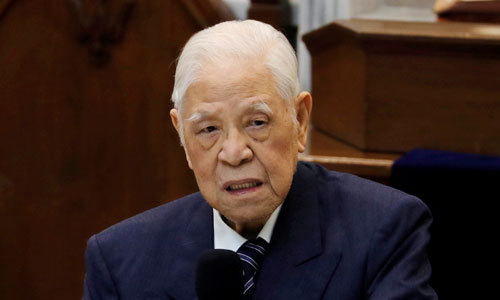
Taiwan was separated after the Chinese Civil War between the Kuomintang of China and the Communist Party of China, when the Kuomintang lost in 1949 and crossed over to Taiwan. The People's Republic of China, where the Communist Party swept to power, had sought to repatriate Taiwan, refusing to recognize Taiwan as an independent country. But Taiwan became the Republic of China when the Kuomintang gained power and maintained a one-party rule in the early days. Democracy in Taiwan blossomed as a multi-party system was introduced and the presidential electoral system began to be reformed. It was Lee Teng-hui, the first elected president of Taiwan, who played a significant role in this process. On July 30th, news of the former president Lee Teng-hui’s passing brought sadness to many. Let’s take a look at his life and how he contributed to Taiwan's democratization.
Before Lee took power, the Kuomintang, including Chiang Kai-shek, suppressed and discriminated against native-born Taiwanese who had lived in Taiwan before the Chinese Civil War. On May 20th 1949, martial law was declared after the Kuomintang’s military carried out a massacre of its own people. Its dictatorship was maintained for about 40 years until July of 1987. However, when Chiang Ching-kuo, who was Vice President, suddenly died, Lee Teng-hui became the first native-born Taiwanese president. He worked as Taiwan's president from 1988 to 2000. He introduced a multi-party system and changed the electoral system of the mayor of Taiwan Sheng, Taipei, and Kaohsiung from nominative to elective through citizen vote. He then introduced a direct presidential election system. The government led by Lee Teng-hui ordered the investigation of past historical incidents which had been buried, and officially apologized for the February 28 incident, one of the most notorious massacre that happened in 1947 but had been buried, in February 1995 to resolve the incident. As the political power of the native-born Taiwanese grew, he called for Taiwan’s independent sovereignty and rejected the ‘One China Policy’, saying "China and Taiwan are equal political entities." In response, China increased tension in the 1996 presidential election by firing missiles at Taiwan to prevent Lee Teng-hui from winning the election. But Lee Teng-hui overwhelmingly won the election with the support of 54% of voters, making him the first elected president of Taiwan. On July 1999, He further increased tension with China by again insisting that "China and Taiwan are separate countries".
The evaluation of Lee Teng-hui is clearly different in Taiwan and China. The Taiwanese who want Taiwan's independence praise him as Taiwan’s 'father of democracy'. This is because he is a very important figure in Taiwan's history by leading Taiwan's democratization through drastic reforms and contributing to Taiwan's independence in the international community. However, China strongly has blamed him as a ringleader of Taiwan’s independence group for rejecting the ‘One China’ policy. Nevertheless, it is undeniable that he became Taiwan's first elected president and left his mark on the democratization of Taiwan. Considering that Hong Kong national security law has been passed recently, which makes it seem difficult to democratize Hong Kong, his life working for Taiwan's democratization is shining and respectable.

